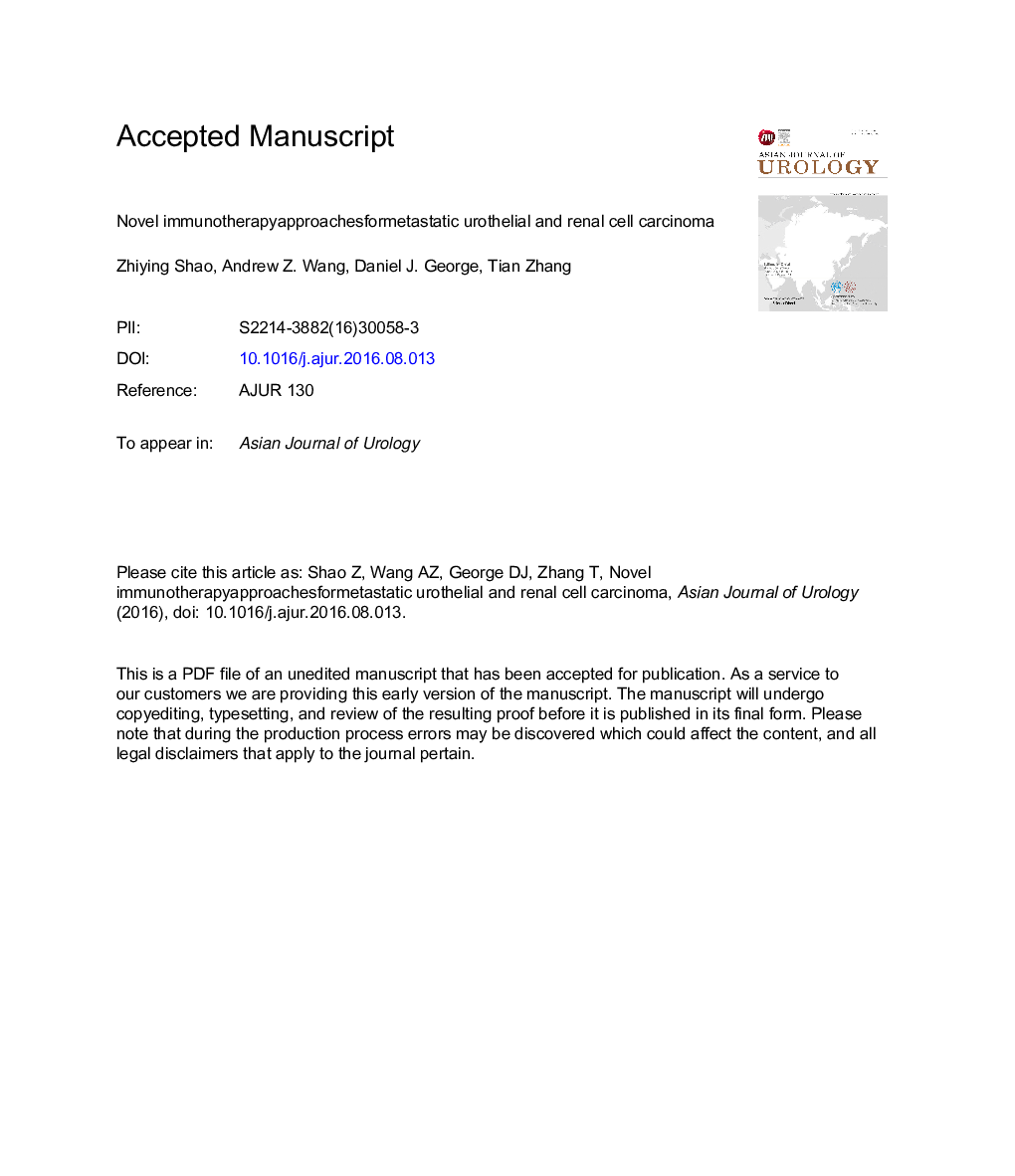| Article ID | Journal | Published Year | Pages | File Type |
|---|---|---|---|---|
| 5685924 | Asian Journal of Urology | 2016 | 26 Pages |
Abstract
The treatment of metastatic renal cell carcinoma (RCC) and urothelial carcinoma (UC) remains a major challenge. Past research has implicated the immune system in tumor surveillance of both malignancies, leading to the application of immunotherapy agents for both cancers. Among them, the most promising agents are the checkpoint blockade drugs, such as antibodies targeting the cytotoxic T-lymphocyte-associated antigen 4 (CTLA-4), programmed death receptor 1 (PD-1), and PD-1 ligand (PD-L1). In normal physiology, these immune checkpoints act as inhibitory signals to fine-tune the duration and strength of immune reactions, which is pivotal for maintaining self-tolerance. However, tumor cells also utilize immune checkpoint pathways to evade anti-tumor immune response, leading to disease progression and metastasis. Thus, there has been intense preclinical and clinical effort focused on the application of checkpoint inhibitors in metastatic RCC and UC. To date, nivolumab (anti-PD-1) and atezolizumab (anti-PD-L1) have been approved for the treatment of metastatic RCC and UC, respectively. Despite these successes, challenges remain in how to further improve response rates to immunotherapy and how to select patients that will benefit from this approach. In this report, we review existing data and research on immunotherapy in metastatic RCC and UC.
Keywords
Related Topics
Health Sciences
Medicine and Dentistry
Nephrology
Authors
Zhiying Shao, Andrew Z. Wang, Daniel J. George, Tian Zhang,
